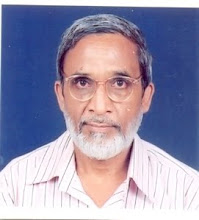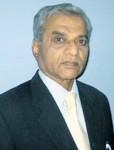The 16th General Election for the Lok Sabha is upon us. A decade of United Progressive Alliance’s (UPA) rule in Delhi has been a mixed bag. It did really well in managing the politically diverse Parliament and the resultant coalition at the Centre and still delivering a lot of its promises on the legislation front. Given the major indices, the economy too did consistently well for all these years and India came largely unscathed out of the 2008-10 recession. Employment scene was rosy all along. Militancy was largely under check”although the Mumbai terror attack smudged the copybook momentarily”and level of social violence came down considerably. These are the positives on the side of the UPA.
But going by the aspiration revolution triggered by the globally networked media, UPA’s record was far from satisfactory. Its two major failings were on corruption and price rise front which have hit the common masses where it hurts most. Corruption has scaled unimaginable heights and wealth is concentrating in fewer hands thereby negating the gains from the employment generation and welfare measures. The most significant shift in corruption happened in terms of its focus being shifted from cash to land in the last ten years. Entire urban lands and properties have been carved up by cartels owned, supported or financed by the politicians and powerful bureaucrats. Owning a house in a city or town has been rendered a dream for the common men. A politician or an official lurks behind every villa, mall, resort, township and apartment in cities. Urban infrastructure is planned around the habitations of the rich rather than the people who actually want and deserve them.
Minorities though received a better deal by way of certain welfare measures, their empowerment continues to be a sore point. There was certainly progress on Sachar Committee recommendations, But Ranganath Mishra Commission report was largely ignored. Reservation for Muslims in government jobs remains a distant dream. Threat of social violence by goons from the principal opposition party is bound to keep it on backburner.
Aam Aadmi Party’s emergence augurs well for the health of the democracy. It has sent powerful shockwaves to the established parties. “People cannot be taken for granted and may plump for choices other than the Congress and the BJP” is the message in short. However ‘anarchist’ the AAP may be, it provides an option to the harried middle class out of the bipolar polity, at least to teach the traditionally major claimants of power. AAP may not be an instant success, but it threatens to upset their applecart. It will eat into votes of the entrenched parties and may lend the expected advantage to greenhorns from among the rivals. The choice is between the least disliked and the most despised.
But there is no escape from cynicism. The general perception is that people who wield power in Indian democracy come to power by so wide misuse of law that to expect that they would stand against injustice, corruption and excess is to expect the unexpected. How would the contestants and the parties vying for the coming Lok Sabha election will counter the perception in the intervening three months has to be seen.
Islamic Voice approached a wide variety of Muslim intellectuals, academics and thinkers in several states to figure out the issues before the electorate. Here are excerpts from responses received from a few of them:
Islamic Voice invited opinion from diverse quarters on the issues facing the voters during the forthcoming Lok Sabha election to be held around April-May 2014. The questions posed were:
1. What are the major issues facing the electorate across the nation or with specific reference to your region.
2. How voters from the minority communities would/should decide their choice?
3. Would parties like AAP with young, ebullient recruits have any chance outside capital Delhi? What is future of parties that can garner massive votes through mobilization of social media but are ideologically hollow?
4. General Assessment of Decade Long Rule of UPA.
Here are excerpts from some of our important readers:
Between Congress and AAP: Predicament of Minorities

Prof. Muzaffar Assadi, Professor of Political Science, University of Mysore
With the arrival of AAP in the electoral scape in recent days initially through mass mobilization and later through the mediation of party has created political ripples. Couple of questions are often raised : will the emergence signal the arrival of new political discourse, will it make the “ordinary” into “all powerful”, or will the new experiment end up in throwing an “anarchist political structure” or will it fizzle out in the years to come.
It is obvious that it is not the construction of “flyovers, ATMs, FDIs, Big Bazars, Malls, New International airports” that brought the AAP to the centrality of political discourse and then to power. Even it is not the four important “right based development approach” that the Congress introduced such as 1-right to education, 2-right to job, 3-right to information and 4-right to food. It is pragmatic politics and everyday life issues such as increasing prices, non-accessibility to public goods, failed public distribution system including institutionalised corruption, that brought AAP to power. AAP’s incipient experiment in the power politics also reflects the bygone French revolutionary “Commune” politics which ultimately ended up in “white terror”
AAPs arrival brought new political discourses: discourse of “ordinary” and “powerful”, discourse of engaging with democracy, discourse of choices. However what is missing is the absence of any “minority agenda”. Neither it has any clear-cut agenda to defeat the undercurrents of Hindutva. In this context minorities face three predicaments: one, defeating political and cultural Hindutva, and two, predicament of “speaking as minorities” in the politics and three, dilemma of representation. This predicament is acute at the national level than in Karnataka. What is needed in this context is a clear-cut political position and an analysis of emerging situation. The new outfit although will make political dent, but given the absence of any “minority agenda”, the party would not be treated as ‘most preferred”. This is because for minorities it is neither inflation nor poverty, as the latter has been the victim of such issues for years together (this is reflected in Sachar Report), but “security”, “identity” and “development deficit” are the issues (in that order). In the ultimate analysis Minorities will vote for that party which has the capability to address these issues than inflation and corruption. Is Congress a better option, despite aberrations, than the AAP?
(Prof. Assadi can be reached at [email protected] )
UPA’s Inclusive Growth Has Paid Dividends

Ali Shariff, Consultant, Pricewater House
1- The elections are being approached very differently by the BJP and Indian National Congress. BJP is making the elections a referendum on weak governance and corruption, and projecting a “strong” leader almost converting the pitch into presidential style of elections of USA. Congress is trying to cut its anti-incumbency losses. BJP presents the growth model while the Congress is projecting its measures towards distributive justice. While the former projects a business, market and media friendly image, the latter banks upon supports from the underprivileged.
2- In terms of the choice between the two leading parties, minority communities have no option but to support the Congress as the atrocities committed by the Hindutva brigade on minorities are well documented.
While a section of Muslims has come out openly in support of AAP in Delhi, it is unlikely that its candidates elsewhere will be able to garner winnable support. In states with strong regional parties, the secular, winnable local candidate will be the obvious choice for tactical voting.
3- AAP has taken the political scene in India by storm and shaken the very roots of established parties. AAP was able to mobilise over a short period and reach a crescendo at the right time, due to a series of fortuitous developments that occurred in New Delhi over the last two years. It has indeed demonstrated that elections can be fought and won within the legally permissible norms, which all other parties flout with abandon, and this has been its most important contribution so far. Such a phenomenon is not easy to replicate across other regions so easily. Also, (my) analysis shows that in Karnataka, it is unlikely that AAP will be able to garner enough votes to win in any seat. However, it may eat into the votes of other parties to a limited extent in some urban area impacting their vote share. This is more like to harm the Congress than the BJP.
4- UPA rule has been a mixed bag, but the balance has clearly been favourable for the country.
Growth has been appreciable during its tenure and its policy of “inclusive growth” is the right approach in a widely diverse country such as ours. Moreover, UPA has brought out landmark legislative changes such as Right to Information, Right to Employment, RTE and has devised many schemes such as MGNREGA, NRHM, JNNURM etc. Also, its sound policies and approach have helped largely protected India from the ill effects of one of the worst global depressions affecting most countries across the world. Its handling of foreign policy was mature. For minorities also, UPA took three highly appreciable steps “ Commissioning of the Sachar Report, Formation of the Ministry of Minority Affairs and the scholarships, which is one of the very well implemented schemes.
Corruption and multiple scams have however sullied UPA’s image and it is not able to defend itself. It could not take a decisive stand on Ranganath Mishra Commission Report recommendation to make 10% reservations for Muslims.
People are fed up with Corruption

Dr. Akmal Husain, Senior Scientist, Govt. of India, Chennai, Ex CEO, UP Sunni Central Waqf Board
The entire Northern India is reeling under aimless and incompetent political leadership with no respect for values like socialism, secularism, democracy enshrined in the preamble of the Constitution. The government system fails to deliver goods in major service sectors such as health, education, social security, law and order, infrastructure, energy, financial security and welfare measures implementation etc). People have reconciled themselves to the circumstances as bureaucrats are hand in glove with their political masters and in liaison with corrupt traders / hoarders and contractors. Emergence of AAP and Rahul Gandhi provides a silver lining. Leaders with trained/ expertise in e-governance and community leadership should be brought forth to fill the void.
2- The major target before Minority community is to halt / curb the prospects of NaMo from capturing the gaddi at the Rasina Road through tactical voting. There are over hundred Parliamentary seats in the country where Muslims can decide the fate of the contenders considering the winnable, secular and capable person. In my view in Uttar Pradesh and its surrounding states, Congress, SP, AAP and BSP would be their choice. If Congress fields credible and able person he / she would be preferred over candidates from the small regional parties.
3-Yes, there is a good possibility because youth (18-45 years) constitute large chunk of voters. The leaders like Kejriwal will get not only gain momentum but maturity also with passage of time. People are fed up with babucracy and corruption. Decentralization mantra of administration (brainchild of Kejriwal) has immense appeal.
4- The UPA’s performance has been above average during the decade long rule. Programmes like MGNREGA, scholarships for under-privileged students, and enactments like the RTI, RTE, Food Security Act, Waqf Amendment Act etc have immensely benefitted the people. But corruption has sullied the party’s image. Representatives from minorities have performed miserably, with possible exception of Mr. K. Rahman Khan during the last two years. His Minority Welfare schemes have percolated down to grassroots.
(Dr. Akmal Hussain hails from Jaunpur, Uttar Pradesh and is currently posted at Chennai)
UPA Govt. Failed on All Fronts

Zafer Mohiuddin, Architect, Theatre Person, Bangalore
1-Issue of corruption is undoubtedly the most dominant concern for the voters today. Both principal parties, the Congress and the BJP are involved neck deep in corruption. Land mafia, sand mafia and liquor mafia have taken over the governance and can bribe their way to get anything done by the Government. Decentralisation of the governance is all an eyewash. Entire system gravitates around the vested interests of politicians at the top. Water, power and housing have become extremely expensive and leading to unprecedented price rise. The legislators are least bothered about bills and legislation. Most bills are hustled through at the fag end of the session without any discussion. Politicians have now set up colleges and hospitals and reaping huge profits.
2-Some parties appease the minorities and some scare them. Atleast Muslims have realized it. They may go the AAP way.
3-All parties go through the face of ideological vacuum and dilemmas which AAP may be facing today. The current surge of popular support symbolizes the pining for change among the people who are fed up with corruption in the ranks of the Congress party and BJP’s divisive agenda. These parties have plundered the nation’s resources or sold them to MNC for a pittance. Look at the SEZs, the auctioning of nation’s forests, rivers and hills. The corrupt, fat, rich politicians today feel insecure facing the hungry, unwashed masses. AAP has done well by cancelling the decision for FDI in retail sale and removing security and red light for ministers.
4-Manmohan Singh Government has been mired in one or the other scams all through the two decades. It failed on all fronts.
(Zafer Mohiuddin recently joined Aam Aadmi Party as a primary member.)
UPA Did Well despite its Handicaps

Md. Harunur Rashid, social activist, Murshidabad, West Bengal
It is going to be a major challenge to the intelligence and acumen of the voters to pick up a political party for his choice of representative in the Lok Sabha. The national scenario is highly chaotic, to say the least. The table of issues is crowded with corruption, price rise, development, stability, dynasty, fiefdom, transparency and assertive and effective governance.
As for the West Bengal, issues are currently taking a backseat. The elections have steadily become a game of brute force, intimidation, manipulation and an all out war against the political opponents. Elsewhere in the country a host of regional parties with their parochial issue will vie with each other and would not allow a single strong party to emerge at the national level. Stability may elude the government. The minorities’ concern would be to keep the communal forces off the corridors of power. Sadly, issues pertaining to their education, social justice, equity and development may get neglected in the struggle to find a secular option.
There seems to be little scope for the parties like the AAP due to their ideological hollowness. Yet they may affect the election result substantially with their potential to hijacking youths’ votes from the national parties.
When objectively assessed the decade long performance of the UPA Government had not be lackluster. It was able to enact several landmark Acts essential to ensure inclusive growth, empowerment through education, food security and transparency in the governance. Crippled as it was by the compulsions of coalition government, it failed to execute its agenda with requisite confidence and aggressiveness. The overriding concern that held its hand all through was to keep its flock together.
(Harunur Rashid is Development Officer with LIC of India. He can be reached at [email protected])
Only Commissions, No Implementation

Dr. M. Jawed Zulqarnain, social activist, Darbhanga, Bihar
Insecurity reigns supreme in Muslim minds. They have no platform to raise their voice. There is not even an organization where they can collectively discuss their issues. Leaders are not competent to take up their issues. They are neglected in matters of education, health, social welfare.
There will be a quadrangular fight between RJD, JDU, Congress and the BJP, unless there is alliance between or among parties. Although Lalu Prasad Yadav was convicted in the fodder scam, his popularity is gaining day by day in Bihar. Muslims see Nitish as one who allowed the BJP to expand and strengthen its base in the state, hence they are circumspect against him. Moreover, having shared power with the JDU for considerable period, the BJP is aware of the loopholes in administration in the state and is creating problems for Nitish administration.
The Aam Aadmi Party certainly has a chance to woo the people outside Delhi and specially in Bihar. They should not involve themselves in petty issues as they did in Delhi recently. It remains to be seen how AAP takes up the grievances of minorities and addresses their concern.
The UPA gave a lot of lollipops to the minorities such as Sachar Committee, Ranganatha Commission, Srikrishna Commission et al. But only a few recommendations were implemented. It allowed a free reign to security agencies to harass and arrest Muslim youth on trumped charges and the campaign has run well over a decade without any let up. It has bred sense of insecurity among the minorities. It has lost the confidence of Muslims.
(Jawed Zulqarnain heads the Jan Seva Cooperative Society in Bihar. He can be reached [email protected])
No Dearth of Alternatives

Gulame Ghouse, Writer and Social Activist, Bangalore
The Congress Party was the only party which was considered strong, secular and pan Indian for four decades after Independence. It had strong leaders like Nehru, Azad, Shastri, Ambedkar, Moraji Desai, Jagjivan Ram, Nanda, Rajendra Prasad, Indira Gandhi etc. To all these leaders, nation came first and all else next. Muslims and Dalits looked up to it as a saviour and protector of the interests of weak and infirm. Unfortunately, after 1990, it lost this status as greed, ego, selfishness, corruption and short sightedness replaced its previous ethos. Slowly, it turned in to a drawing room party which failed to understand the aspirations of the common man. It began to tolerate the perpetrators of communal riots. The destruction of Babari Mosque drove the death knell into Congress coffin. Muslims found an alternative in the local secular parties like SP, BSP, RJD, DMK, NCP, JDS etc. Though the Congress began to bounce back into public imagination from 2004 onwards, several of its leaders turned greedy, corrupt, egotistic and the party has degenerated into an amalgam of vested interests. Yes men and sycophants rule the roost. People have moved away from it.
As of today Muslims are a confused and divided lot, with no leader in sight to guide them on a clear and safe political path. In such a scenario the emergence of AAP in Delhi is attracting the attention of the people throughout the Country. It is an outcome of deep frustration against the Congress and the BJP by the Common man. It has not brought divisive issues of religion and caste into its campaign and has rather taken up the issues of price rise and corruption, issues that affect all people regardless of their faith. It promises strong and clean governance, honesty, and transparency. It echoes the feelings of the common man who is fed up of the so called due process, inquiries and commissions which take years to give their findings, and deprive the common man of justice. People are joining this party in droves and it is quite possible that it will emerge as a force in the 2014 election.
Now, Muslims have a choice between Congress, local secular parties and AAP. It is in the best interest of Muslims if they vote local parties in Uttar Pradesh, Bihar, Maharashtra, Tamil Nadu, West Bengal and Congress in all other States. It is equally important for the Muslims to vote AAP wherever it fields honest, secular and winnable candidates. However, AAP is unlikely to be a force at the Centre for the next five years. Congress is the only secular party that can keep the country united, strong and peaceful. Despite all its present weaknesses, it has the capacity to bounce back, provided its leaders shun the path of arrogance. Congress can also do what the AAP has done in Delhi by implementing people-friendly policies in all the States where it is in power and regain the confidence of the people .
(Gulame Ghouse can be reached on [email protected] or Ph:9980827221)
Bureaucracy Put Spokes in the Wheel

Dr. Mukhtar Ahmad Makki, Karim City College, Jamshedpur, Jharkhand
1. At present Indian electorates are facing several problems like security of life and honour, communalism, corruption, unemployment of youth, Poverty etc. In Jharkhand too the same problems exist besides common law and order due to Naxalites.
2. So far minorities particularly Indian Muslims are concerned, two major problems persist, first, security of life, honour and property due to communal forces and also by security forces who can fabricate any charges anywhere against them and put them in jail for many years without any trial. Secondly, equal opportunity in education and job sector. Muslim constitutes 14% of the Jharkhand population but in public and private domain they are hardly 2 to 4 %. Their youth are unemployed and want equal treatment and share in the education and job market but they are unable to give vent to their feeling. This will certainly decide their vote.
3. AAP is the reaction of common men against established elitist political system i.e. Congress and the BJP in Delhi. Common men are fed up with the saying and deeds of leaders of all political parties. In Delhi our mass media projected it in a very low profile. So only 28 candidates of AAP could win otherwise it must be 60 out of 70. Storm and ideological hollowness is there but it represents common man’s feelings and his anger against the elite class enjoying all the power and privileges but doing nothing and cheating their master i.e. Demo= people of the democracy.
4. Present UPA is ruling the country for the last one decade. It has enacted several new laws like right to information, right to education etc. Some time it seems that it wanted to improve living conditions of middle class people but bureaucracy, Police forces and other law enforcing authorities are not cooperating with it fully. Corruption is at its peak at all levels of governance. In spite of Sachar and Mishra Committee reports, the UPA Government has done nothing to implement them and whenever it tried halfheartedly to implement some of its provisions, bureaucracy adopted noncooperation attitude due to its biases and prejudices.
(Dr M. A. Makki can be reached at [email protected], 0-9431759577).

COMMENTS